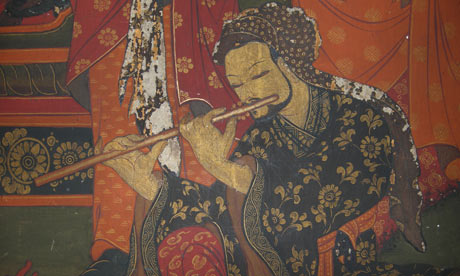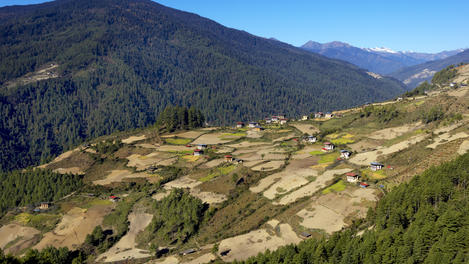Editor’s note: Wanderlust is a regular GlobalPost series on global sex and relationship issues written by Iva Skoch, who is now traveling the world writing a book on the subject.
THIMPHU, Bhutan — Most of the penises painted on houses or suspended from rooftops in Bhutan are larger than humans.
They come in various sizes, color schemes and embellishments. Some have ribbons tied around them like jovial holiday presents. Others are coiled by daunting dragons. A few even have eyes. They typically feature hairy testicles, from the neatly trimmed to full-on Yeti-style. And, of course, all are fully erect.
“Oh, golly,” said an elderly woman visiting from Seattle, when she stepped off the bus in the Punakha valley and found herself surrounded by an alarming concentration of penis imagery, set against a magnificent Himalayan backdrop.
She was one of just 30,000 “outsiders” in 2010 who visited this isolated country wedged between China and India. While Bhutan tops many travel wish lists — thanks to its almost utopic reputation as “the last Shangri La” and a place where the government measures success in “Gross National Happiness” instead of gross domestic product — only a fraction can afford such a trip. Continue reading Wanderlust travel: Penis worship in Bhutan





